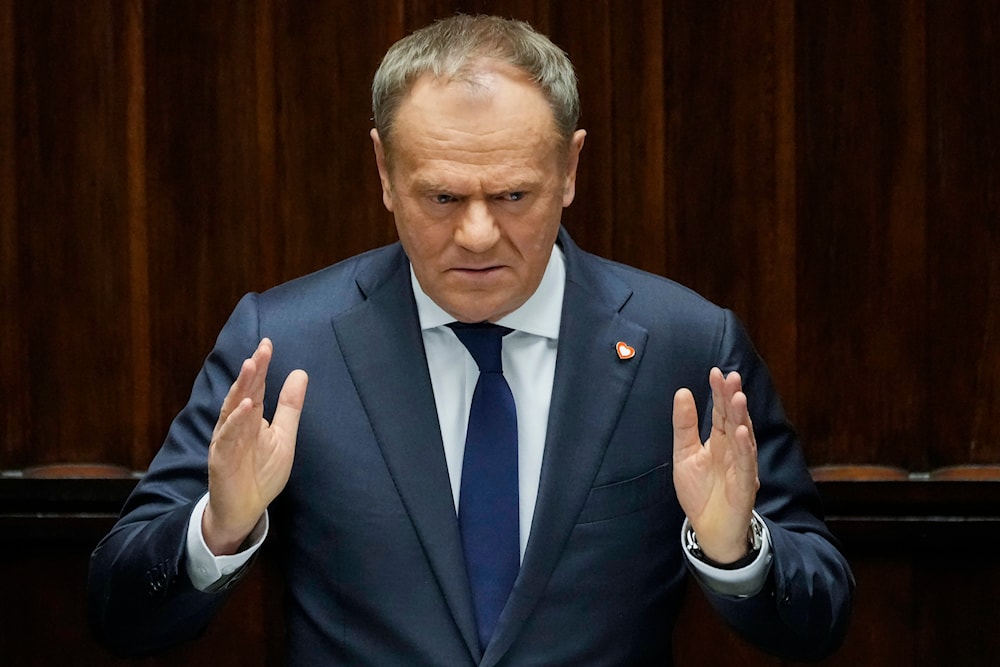Poland open for talks on French nuclear shield treaty
Poland’s Prime Minister Donald Tusk announces a landmark defense treaty with France, enhancing military cooperation and potentially sharing protection from French nuclear missiles.
-

Polish Prime Minister Donald Tusk speaks at the Sejm, the lower house of parliament, in Warsaw, Poland, on March 7, 2025 (AP)
Poland’s Prime Minister Donald Tusk said a treaty with France’s Emmanuel Macron, to be signed Friday, could open discussions on sharing protection from French nuclear missiles, according to Bloomberg.
The pact set to be finalized in the eastern French city of Nancy will encompass a commitment to mutual military assistance in case of an armed conflict, along with enhanced defense industry cooperation, as explained by Tusk during his press briefing in Warsaw.
Additionally, he described the provisions in the treaty as "groundbreaking from the point of view of our security."
Tusk has previously stated that Poland is engaged in "serious talks" with France regarding Macron's proposal to extend his country's nuclear deterrence to protect European allies while warning that the continent could confront a war with Russia within the coming years.
“The treaty, of course, opens up the possibility which we will describe later in technical and financial details,” Tusk stated on Friday.
The push to strengthen economic and military ties between Poland and France arises as doubts linger over the future level of US military aid for Ukraine, while mounting pressure from Trump urges European allies to assume greater responsibility for their own defense.
US reconsiders its role in Europe
As the Trump administration starts to define its defense strategy for a potential second term, a comprehensive assessment of overseas US military deployments is currently in progress, particularly emphasizing the European theater.
This posture review is motivated by multiple critical considerations, including efforts to reduce federal expenditures, an increasing strategic emphasis on countering China, and a desire to foster better diplomatic ties with Russia.
The administration has further voiced dissatisfaction with what it perceives as NATO partners depending too heavily on the US, with Vice President JD Vance emphasizing during the Munich Security Conference in February that European allies should take greater responsibility for the continent's security moving forward.
According to Izvestia, Vance's comments do not signal a retreat by the United States from Europe, but rather a redefinition of its roles in the region, as it moves towards a more transactional foreign policy under the leadership of Donald Trump.
Additionally, it highlighted that the United States is shifting its outlook away from Europe and focusing on the Indo-Pacific region, where China emerges as the US' biggest rival, while the EU's significance starts to diminish.

 3 Min Read
3 Min Read








